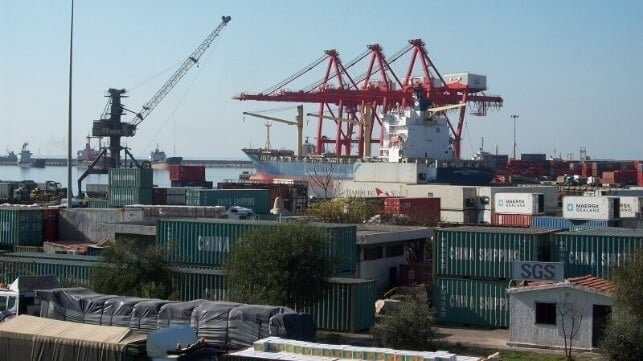The New Agreement Between Syria and CMA CGM for Latakia Port Operations
The new government of Syria and CMA CGM made official today their new agreement to operate the Latakia port, the country’s main seaport located on the northern Mediterranean coast. CMA CGM has been operating the port for over a decade under the previous regime of Bashar al-Assad.
In February, the new government announced that they had reached terms with the French group for a new, extended management agreement with revised terms. During the signing ceremony on May 1, officials highlighted that the operations would be under state supervision and that the new contract was provided without granting any exceptional operational privileges.
CMA CGM has been granted a new 30-year agreement for port operations. The Syrian port authority stated that the new agreement addressed a settlement of all outstanding obligations and introduced new terms. Reports suggest that the Syrian state will receive 60 percent of the port’s revenues, with CMA CGM retaining the remaining 40 percent. This percentage will be adjusted as the number of containers entering the country increases.
Mazen Alloush, Director of Public Relations for Syria’s General Authority for Land and Sea Ports, mentioned that CMA CGM has committed to new long-term investments in the port and its operations. The company is set to invest approximately $32 million in the first year to maintain and modernize the port’s equipment. Over the following four years, an additional $230 million will be invested in the expansion of the port, including the construction of a new pier capable of handling larger vessels and deepening the basin.
The new agreement acknowledges CMA CGM’s support for Syria despite international sanctions in recent years. It was also noted that the Saadé family, who owns CMA CGM, has historical ties to Syria, although they are now identified as French-Lebanese.
However, the port has had a controversial past, with reports of sectarian violence and illegal activities. The Port of Latakia has been linked to smuggling and the regional trade in illegal drugs. There have also been allegations of the port receiving shipments of Ukrainian grain stolen from Russian-occupied Crimea.

